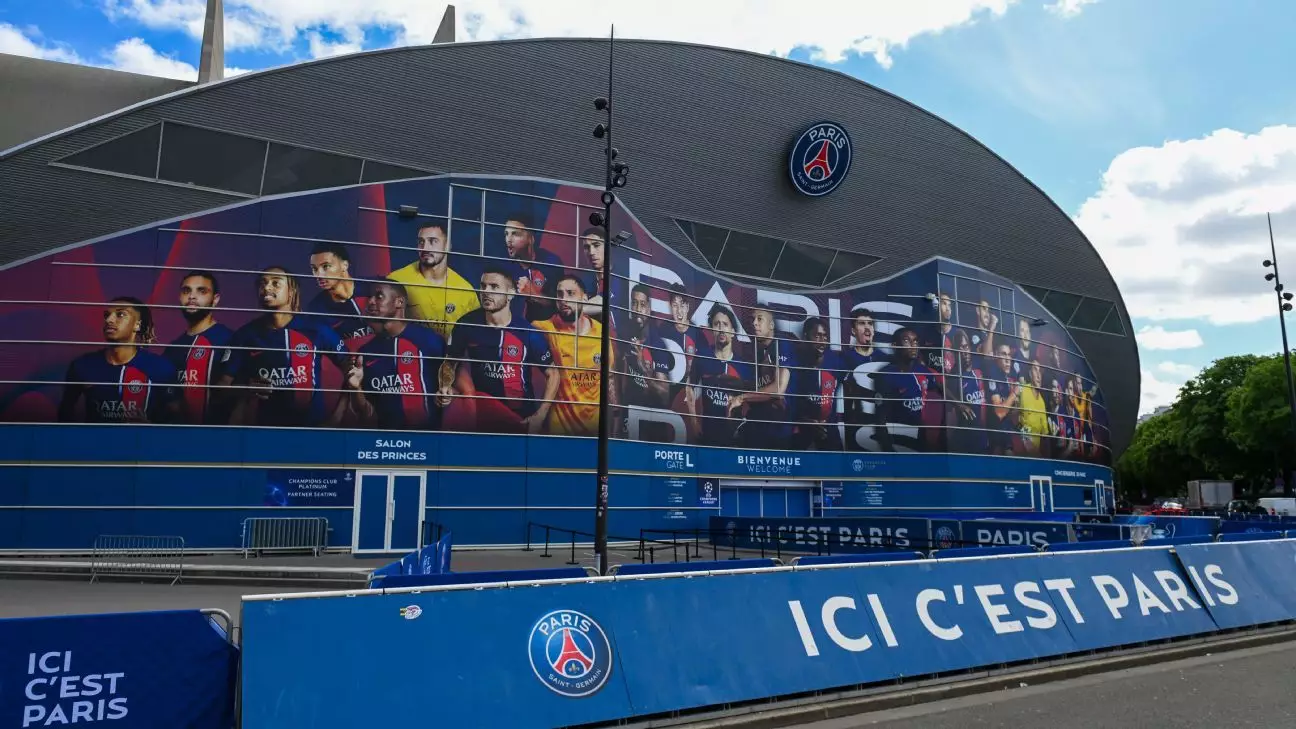In an intriguing strategic pivot, Qatari investment entities, including the Qatar Investment Authority (QIA) and Qatar Sports Investments (QSI), are reportedly scaling back their spending in France. This development marks a noticeable change in the approach that had characterized their investments over the past decade, particularly in high-profile assets such as Paris Saint-Germain (PSG). The QIA, with an enormous asset base estimated at €500 billion, has been a formidable player in international investments, and its recent cooling gaze towards the French market raises questions about the underlying motivations and implications for future ventures.
Sources close to the situation have indicated that this shift has been in the works for over a year, suggesting that it is part of a broader reevaluation rather than a knee-jerk reaction to external pressures, such as the ongoing investigation into Qatar Sports Investments’ president, Nasser Al-Khelaifi. Although Al-Khelaifi faces charges related to alleged corruption tied to a French businessman, the accusations have been clearly delineated from his leadership role at PSG. His situation has nonetheless attracted media scrutiny, which some Qatari officials perceive as indicative of a broader, unjust treatment from the French media and political landscape.
Repercussions of a Disharmonious Landscape
The concerns stemming from the French political climate and judicial system are compounded by a perceived narrative of bias against Qatari interests. Qatari officials have reportedly expressed dissatisfaction with their treatment in the French media, leading to the decision to liquidate portions of their extensive holdings in the country. This includes valuable real estate and hotel investments, which previously showcased Qatar’s commitment to France as a priority investment destination.
Historically, Qatar’s approach to PSG has been centered around ambitious aspirations, including substantial investments in high-profile players that have transformed PSG into a national powerhouse, clinching 10 Ligue 1 titles in just over a decade. However, despite the sporting successes at the domestic level, the perennial quest for UEFA Champions League glory has remained elusive, casting a shadow over QSI’s investments and leading them to reconsider their strategy within a challenging environment.
External Collaborations and Future Prospects
The evolving investment landscape has led QSI to explore partnerships and external investors. Notable actions include the recent minority stake acquisition by American investment fund Arctos in tandem with NBA star Kevin Durant in PSG. Such moves reflect QSI’s desire to diversify its capital base and mitigate risks by inviting fresh investments, particularly as the focus shifts away from a heavy reliance on French markets.
Moreover, beIN Media Group, which holds broadcast rights to Ligue 1, has actively engaged in discussions to strengthen its alliances overseas, particularly with Saudi Arabian entities. This strategic repositioning illustrates Qatar’s intent to align its media investments with awaited growth opportunities outside France, recognizing that the traditional routes may no longer yield the expected returns.
As the complexities surrounding Al-Khelaifi’s legal challenges unfold, it is evident that Qatar’s reconfiguration of its investment strategy in France represents more than mere speculation; it signals a thoughtful recalibration in light of numerous internal and external pressures. Losing faith in the French environment, regardless of setbacks, may compel Qatari stakeholders to seek more favorable economic climates and partnership opportunities elsewhere. The ripple effects of this pivot could redefine the landscape of European football investments, as more entities may follow Qatar’s lead and reevaluate their commitments in France, affected by the interplay of media representation, political sentiment, and judicial scrutiny.
This ongoing saga serves as a reminder that investment landscapes are profoundly influenced by political climates and judicial integrity. How this will ultimately affect the prospects of both PSG and broader Qatari interests remains to be seen, but the decision to reduce exposure in France signals a significant shift with potentially wide-reaching implications.

